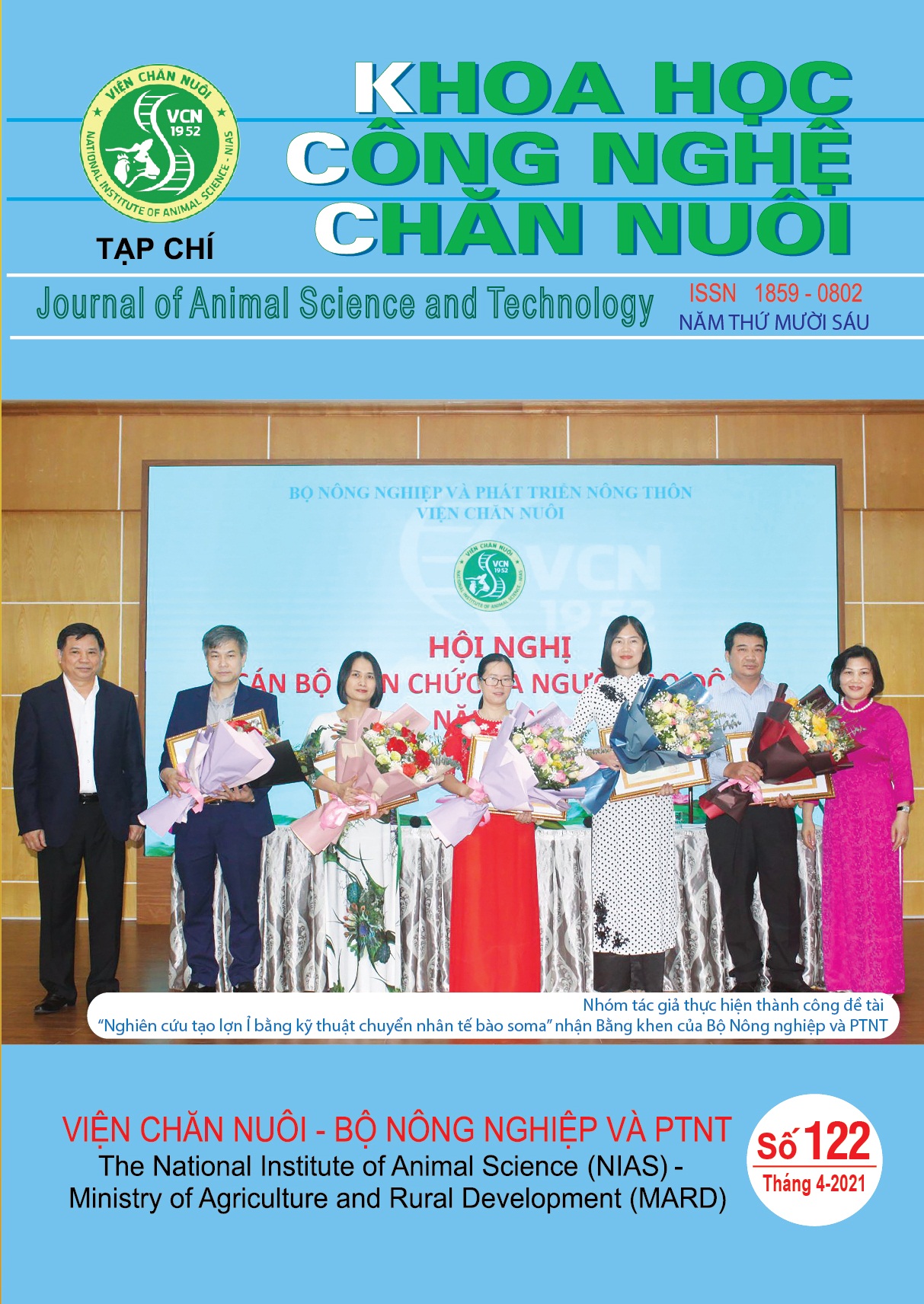Research on using protein-enriched cassava meal and cassava pulp in total mixed ration for fattening cattle
The study was conducted to evaluate the quality of protein-enriched cassava meal and cassava pulp by microbial fermentation technology as well as the efficiency of using protein-enriched cassava meal and cassava pulp in total mixed ration for fattening cattle. Cassava meal and cassava pulp were supplemented with enzyme Kermin at 0.1% (as DM). Dissolve 3 kg molasses and 3 kg urea in 50 liters of water, adjust pH = 5; Add yeast solution, the rate of 5%, stir well, aerate for about 8 hours. After being mixed with the enzyme, materials were mixed with molasses, urea and yeast solution so that there was enough moisture about 60% (50 liters/100kg of material), mix the ingredients with a mixer, leave for 1 hour then put the ingredients in the sealed incubation bag. The bags were kept in the fermentation room, evaluation time: 0 day, 1 day, 3 days, 5 days and 7 days after fermentation. The cattle fattening experiment was conducted on 12 BBB × Lai Zebu crossbred bulls, 18-19 months old. Bulls were divided equally into 2 lots, bulls in Lot 1 were fed TMR using unprocessed cassava meal and cassava pulp, and bulls in Lot 2 were fed TMR using protein-enriched cassava meal and cassava pulp. The study results showed that crude protein of cassava meal and cassava pulp increased from 3.3 and 2.96% to 16.87 and 15.80%, respectively, at day 5 after fermentation, in which true protein was 85.77 and 81.22%, respectively. The number of pathogenic microorganisms such as hemolytic E. coli, Salmonella, Clostridium perfringens and Staphylococcus aurêus were within the permissible limits. Fattening bulls fed TMR using protein-enriched cassava meal and cassava pulp resulted in higher weight gain and lower feed costs per kg weight gain compared to fattening bulls fed TMR using unprocessed cassava meal and cassava pulp (1,561.1 compared to 1,424.1 g/day and 52,105 versus 63,164 VND/kg weight gain).

